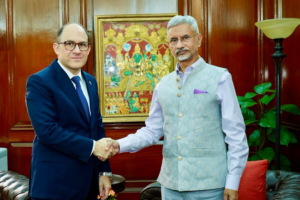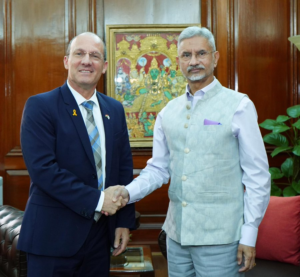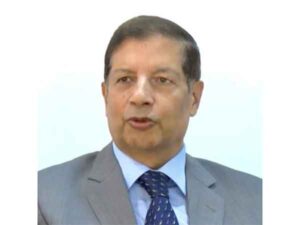Judicial Department in Abu Dhabi receives French Judicial School Delegation
Abu Dhabi [UAE], April 24 (ANI/WAM): The Judicial Department in Abu Dhabi received a delegation from the National School of the Judiciary in France and discussed ways to enhance cooperation and exchange experiences, knowledge, and expertise in the fields of justice.
https://www.upsc.gov.in/FR-CSM-22-engl-230523.pdf
The visit comes within the framework of cooperation between the Department in Abu Dhabi and the French Judicial School, under the directives of His Highness Sheikh Mansour bin Zayed Al Nahyan, Deputy Prime Minister and Minister of the Presidential Court, and Chairman of the Abu Dhabi Judicial Department, to strengthen ties and cooperation with judicial institutions, ensuring the development of a world-leading judicial system. The visiting delegation was briefed on the competencies of the Family Civil Matters Court at the Abu Dhabi Judicial
Department, which is the first civil personal status court in the region to provide a civil law regulating the personal status of foreigners as it has introduced legislation promoting the liberal principles such as respect for freedom of individuals and equality of rights and duties between men and women. This has proved the keenness of the Emirate’s leadership in legislative development and modernisation in the Arab region.
https://www.upsc.gov.in/FR-CSM-22-engl-230523.pdf
The delegation learned about the services provided in specialised courts and their role in facilitating access to justice and ensuring the quality and consistency of judicial rulings.
The delegation visited the Non-Muslim Services Office and the Registration Section to learn about the multilingual court system, the electronic case system, the remote litigation mechanism in Abu Dhabi courts, the legal procedures, and the advanced legislative environment.
https://www.upsc.gov.in/FR-CSM-22-engl-230523.pdf
The French delegation commended the qualitative initiatives of the Judicial Department in Abu Dhabi, in establishing specialised courts, providing smart and innovative justice and judicial services, holding visual trial sessions, and relying on qualified and trained cadres with state-of-the-art technology that enable all tasks to be completed in an accessible manner.






